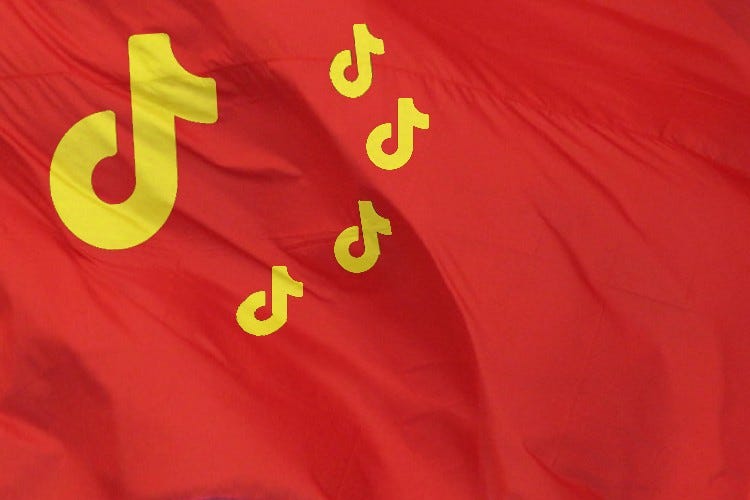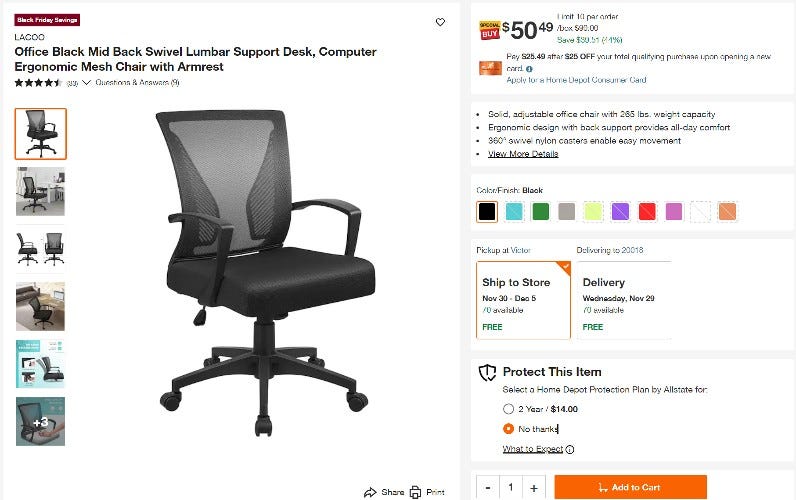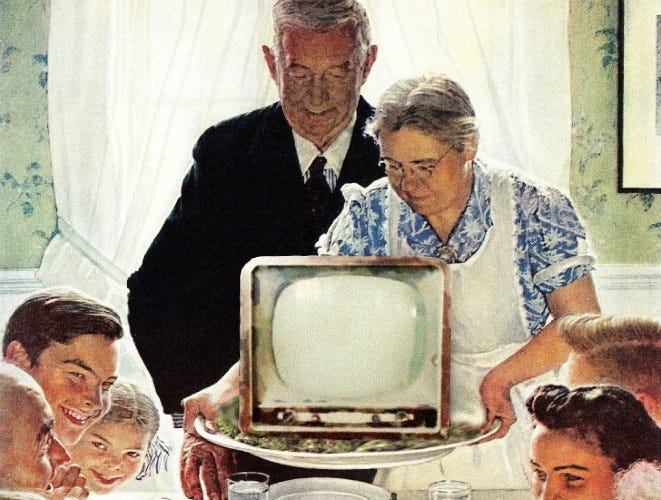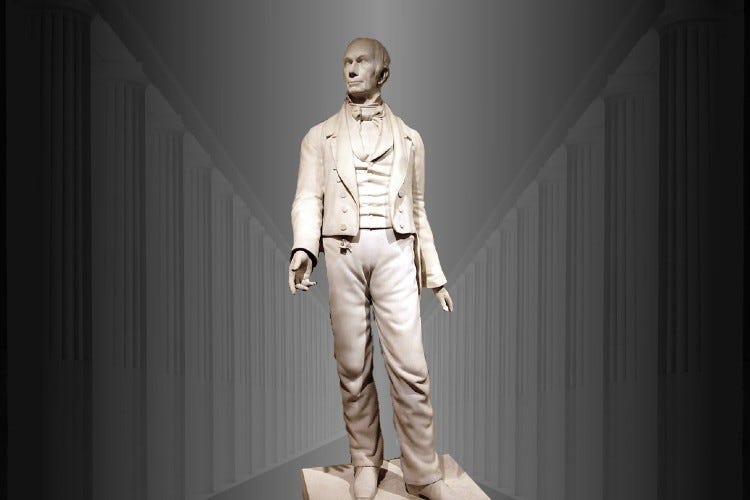Is the Pants-Shitting About TikTok Justified?
Are we xenophobes, suckers, or something in between?

Let’s get this out of the way up top: TikTok is a blazing supernova of T-Rex diarrhea. It’s a divisive, shallow, Algonquin Round Table Of Morons that makes Twitter look like the Leibniz-Clarke letters. Personally, I hate TikTok because it’s one of the things ruining comedy, because most TikTok comedy is for-kids-by-kids and caters to their undeveloped and ultra-conformist tastes.1 Kids don’t know what they like, which we’ve known at least since the focus group scene in The Simpsons’ “Poochie” episode, which was written by top-level comedy writers and greatly enjoyed by 16 year-old me, who needed to be shown something good before I could know what’s good.
Of course, you can’t ban something just because it sucks — in America, we call that “the Maroon 5 loophole”. But the government might have other reasons to ban TikTok. Congress and the White House are exploring their options; Biden has banned TikTok on federal devices and threatened a total ban if the company isn’t sold. Meanwhile, Congress is working on several bills that could facilitate a ban.
As a practical matter, the government might not actually have many options. A sale seems unlikely because not many people have $40 billion, and one guy who did just blew that amount buying Twitter and then Thelma & Louise-ing it off a cliff. There are also statutory and constitutional barriers that might make a ban impossible. But even if we could ban TikTok…should we? How big is the threat?
I think our dialogue around TikTok tends to conflate three problems. This article is an attempt to tease out those problems so that we can determine how much pants-shitting is prudent.
Problem #1: TikTok might be the worst thing to happen to teenagers since Jeffrey Epstein
This is Jonathan Haidt’s bailiwick: Haidt has a Substack devoted to chronicling the ways that social media is poisoning whatever’s left of young people’s brains after they’re done eating Tide Pods. In my opinion, Haidt is basically right: There appears to be strong evidence that social media is contributing to a mental health crisis among young people. Haidt’s work makes me think that I’ll probably greatly limit my son’s social media use when he gets older, unless he makes a lot of money off of unboxing videos or dance tutorials, in which case: Full steam ahead, son, Daddy wants a beach house.
TikTok is to social media what fentanyl is to drugs: It might be the worst one. TikTok is tribal and obsessed with physical appearance, so much so that the occasional dollop of Osama bin Laden fandom on the platform seems like a lesser concern. The data around TikTok is troubling, and anecdotally, most of us have met enough fragile, absurdly misinformed young people that we’d like to rid the world of whatever hell-spawned witchcraft made them that way.
But is a ban the right solution? Not in my opinion. I’m extremely hesitant to involve the government in parenting decisions. TikTok might be bad for kids, but so are pizza and video games, and those are the cornerstone of my bonding strategy with my son. Parents, not the government, should decide how much social media use is the right amount. In terms of public policy, schools might want to ban phones, and laws that give parents more control — like requiring teens to get parental consent before they open a social media account — could help. Still, the freedom to warp our children’s minds in whatever way we see fit is a fundamental American right, so banning TikTok to produce fitter, happier, and more productive children probably doesn’t make sense.
Problem #2: TikTok — and therefore probably the Chinese Communist Party — has access to data about what a pathetic, depraved pervert you are
Admit it: You’re a sick, sick puppy. But don’t worry — we’re all disgusting, vindictive fucks. Unfortunately, in the Internet Age, we all leave digital fingerprints that could shatter the illusion that we don’t deserve to be locked in a cage and fed scraps like the depraved animals we are.
Social media companies collect user data. In fact, they are data collection companies — the content is a loss leader to get you to provide data that they can sell to Nestlé and Home Depot. For the most part, this process is pretty innocuous; tech journalists often act as if data collection is part of a Minority Report-style plot to create profiles of every citizen, but mostly what’s happening is that Home Depot wants to sell you a desk chair. And you might want to see that ad for a desk chair; sometimes I see a well-targeted ad for a product I want and think “Great work, dystopian mind-reading system.”
Of course, some data is sensitive. You might not want your wife to know that you visited Bessie Sue’s Ol’ Country Jack Shack and BBQ Pit, especially if she prefers the more-reasonable prices at Barnacle Pete’s Rough & Gruff Tug Tavern. Also, most of us like to pretend that we’re not online-stalking our exes. Tech companies possess personal data, and when Tik Tok has that data, that means that the Chinese Communist Party might have it, too. And that’s a problem because the authoritarian Chinese government is marginally more odious than your average tech company.
China has a law requiring Chinese companies to cooperate with requests from Beijing’s security and intelligence services. Superficially, this might seem similar to US law — you can’t tell the FBI to go jump up their own asses, after all. But the US has courts and warrants and the government doesn’t always get what it wants. In contrast, a Chinese executive telling the CCP “no” would basically be a suicide attempt. Forbes also reported that TikTok’s parent company planned to use TikTok to track the location of two specific American citizens. TikTok has access to a lot of personal data, and therefore the CCP might have access to it, too. The chances that Xi Jinping is personally browsing your TikTok search history and laughing his ass off at this very moment are not zero.
Now, it must be said: I think that data privacy concerns are often overblown. Not all data is equally sensitive. I made a cheap joke earlier about Bessie Sue’s Ol’ Country Jack Shack and BBQ Pit, but most location data is proximal, so all you need to do to hide the fact that you were at Bessie Sue’s, specifically — and not just in that part of town — is to stay off the Wi-Fi (it’s slow anyway!). In reality, most of us are too inconsequential to track, and there’s no international conspiracy to embarrass us. Honestly: Do people really think that the Chinese government is going to extort them because they clicked on a Viagra ad one time? Our lives are not that interesting and never will be.
But some people are vulnerable to extortion, specifically: Prominent people and people with access to classified information. Which is why I think Biden’s TikTok ban for government employees makes sense. I’d also stay off of TikTok if I was a Chinese dissident, though if you’re a Chinese dissident who’s too dumb to delete TikTok from your phone, then you’re probably not going to last long in the dissident game, anyway. My take on the privacy concerns around TikTok is that they are very real for a small subset of people, mostly theoretical for the rest of us, and it may be possible to address those concerns without a total ban.
Problem #3: TikTok allows Chinese propaganda to crowd out good, old-fashioned American propaganda
Would we have let the Soviet Union own an American radio station during the Cold War? Would we have let Al Qaeda own a TV station in the early 2000s? If so, could that TV station have saved Freaks and Geeks? And if the answer is “yes”, then why didn’t Congress force NBC to be sold to Al Qaeda? I demand answers; I’m still pissed that we only got one season of that show.
Social media platforms influence what we see. As with data concerns, this power is normally wielded by tech gurus, by-and-large the most trusted, well-liked people in America. But with Tik Tok, there’s reason to worry that the CCP might have their hands on the dials. Algorithms are power, and they’re also secret, so we can only speculate about how China might be undermining American democracy through the spread of terrible comedy.
Once again, we need to put this fear into context. If you’re worried about media platforms manipulating people’s opinions, then I have terrible news: That’s been happening for thousands of years. The Lascaux cave paintings were basically a Stone Age attempt to whip up popular hatred of wooly mammoths. Social media is disturbingly adept at fomenting tribalism and false beliefs even when the motivation is good, old-fashioned American profits.
But there’s still something odd about a strategic rival having access to a media platform that’s hugely popular in America. The Israel-Hamas conflict has made it easier to imagine what the manipulation of public opinion in response to a world event might look like: Pro-Palestinian hashtags have been far more popular on TikTok than pro-Israel hashtags (though TikTok disputes this). Of course, that’s not necessarily evidence of manipulation: Other social media platforms have seen similar patterns. It could simply be that TikTok is to young leftists what Fox News is to conservative geezers. But regardless: The ability to manipulate opinion exists.
Would the CCP respect TikTok’s independence in the event of, say, a Chinese attack on Taiwan? Surely not even people on TikTok are naïve enough to believe that. If China attacked Taiwan, then TikTok would surely become as rabidly anti-Taiwan as this blog is rabidly anti-Maroon 5. In fact, a conflict over Taiwan would probably be the type of event needed for a TikTok ban to survive a First Amendment challenge.
In the absence of that type of conflict, though, the First Amendment might scuttle a ban. It’s no small thing for the government to outlaw a popular social media platform. Imagine the government banning Al Jazeera, or a social media platform based in Europe (this example imagines that Europe’s tech sector isn’t a barren moonscape, but just pretend). That’s not something that the government usually can or probably should do. At present, the threat posed by TikTok is mostly theoretical: They could abuse user data and might manipulate public opinion. But until the danger is a lot more clear and present, the First Amendment probably trumps security concerns.
For all these reasons, a ban seems unlikely to me. Anti-TikTok legislation has stalled in Congress, and the state of Montana’s TikTok ban is — predictably — tied up in court. The mere threat of a ban seems to have spurred movement from TikTok; last year, they launched a data protection plan called “Project Texas”, presumably because “Project Hooray America USA #1 Let’s Go Baseball” seemed too on-the-nose. They’re currently in talks with the Treasury Department about new data protection measures. My guess is that TikTok will eventually reach a deal with Treasury about data protection, and we’ll just live with the mass persuasion threat…up to the moment that the first Chinese plane enters Taiwanese airspace. But if that happens, that plane might as well continue on past Taiwan and bomb TikTok’s US servers, because their time in the US will be over.
Until then, a societal norm that sees TikTok as a less-than-respectable news source is probably the best we can do. In a perfect world, saying “I learned that on TikTok” would be like saying “I saw that on Russia Today.” Which most people hear as “ignore me and go about your day.” We don’t know that China is manipulating Americans through TikTok, but we know that they could. And how much you choose to fill your pants in response to that reality is a matter of personal choice.
I don’t want to paint with an overly broad brush: Some stuff on TikTok is funny. This guy makes me laugh. Also, this guy in Sudan (not a comedian) who is trying to raise awareness of what the Janjaweed are doing in that country deserves more views. So, IMHO, TikTok is mostly crap but by no means all crap.








Not gonna lie, when I first skimmed the headline I thought this was a post about a hot new TikTok trend called the Pants-Shitting Challenge.
It's going to be fascinating to look back in 25 years at the way we managed the internet and social media and realize how wildly irresponsible we were. 10-year-olds on TikTok today are the equivalent of the 6-year-olds with black lung in 1900 from too much time in the mines.